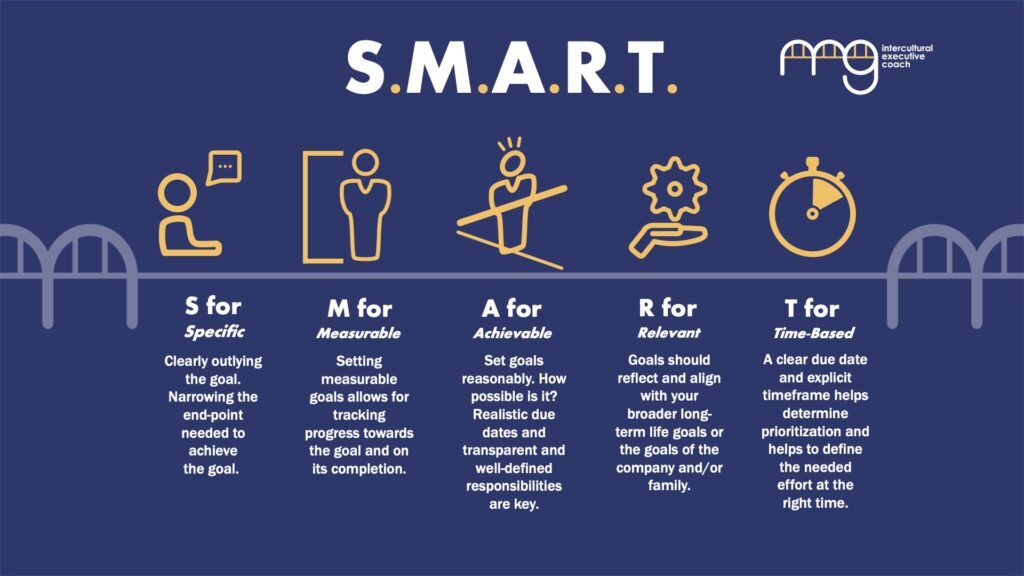It’s that time of the year when everyone is doing their list of New Year’s resolutions. Some do it as an exercise of personal discipline, much like a business planning exercise. Others do it as a form of motivation to put together how they’ll achieve their dreams and wishes. Then some others will do it to remedy old resolutions not achieved or forgotten, and try to make a fresh start.
It can be done in a simple way, or it can become a deeply thought process where a S.W.O.T. (Strengths, Weaknesses, Opportunities and Threats) analysis and timely follow-up is assured. But most importantly we should assure that they are successfully achieved. Let’s take a quick look at two key factors that can help you make more likely and realistic goals.
How long do you keep your New Year’s resolutions?
According to an article in the Forbes article only 8% of those who make New Year’s resolutions actually keep them. We all know that it’s not easy, it’s not just a little wish list one writes up at the New Year’s Eve party or dinner. If we want it to be a worthwhile reflection of our journey to fulfillment and happiness, we also need to define how to continue with our growth and self-realization, and more important, make sure we dedicate some serious thought.
Now as everything else we do; how do we feel more comfortable doing this exercise? Where should we start? Well, it depends on our values, beliefs, and personalities. Let’s see how we can apply two of the Cultural dimensions to increase the possibilities of success.
How S.M.A.R.T. are your New Year’s resolutions?
Maybe it’s all in how they are established. Even if it’s for our personal goals, we should assure our resolutions are S.M.A.R.T.: Specific, Measurable, Achievable, Realistic and Timely. If we see it from the “Process-oriented vs. Results-oriented“ Cultural Dimension point of view, countries such as U.S., U.K., and Spain, tend to focus on results.

Germany and Japan are countries where there is more focus on the process, there is always a proper way to do things. In these last cultures, kids may seem to want to “study more,” while an American or Latin-American child might plan to make straight As or 10’s. In the middle are countries such as Mexico which is result-oriented.
So, if you’re looking to exercise more, if you’re more result-oriented, what do you focus more on? The weight loss? Walking 10,000 steps? Or if you’re process-oriented, it might be better to focus on going to the gym or buying the new treadmill.
In my view, I think the key to success is to find a process that focuses on your result to achieve it. But then again that might be because of my Mexican side, I’m in the middle of this scale.
New Year’s resolutions on your own or get some friends to help?
The next Cultural Dimension one can consider is Individualism vs Collectivism. In an Individualistic culture, such as the USA, UK, or Germany, the New Year Resolution can be set on an individual basis. Setting a time where you can do these activities on your own, might be the key. I previously talked about Individualism on a past piece about culture in the American continent.

Whereas in a Collectivism culture, such as Mexico, or Japan, get a group together to achieve that common goal, be it learning to cook, doing tai-chi together at the local park, taking a spinning class together or even having a group chat where all participants can post their daily achievements to the group. This can become an activity that can be combined with a social goal as well.
New Year’s resolutions: an Intercultural Executive Coach can help
So, what are your New Year’s resolutions this year? How can you approach it to make it more plausible? Can your cultural style guide you to a better way to define and achieve your personal and leadership goals? As an Intercultural Executive Coach I can help you identify the new cultures you are now coexist in, and how similar and different you are in terms of values, beliefs, or behaviors. As a Certified Coach I can accompany you in reflecting on the achievement or fail of past resolutions, and furthermore, move forward in this New Year.
Sources / Further reading
- Diamond, D. (2013). Just 8% of People Achieve Their New Year’s Resolutions. Extracted from https://www.forbes.com/sites/dandiamond/2013/01/01/just-8-of-people-achieve-their-new-years-resolutions-heres-how-they-did-it/?sh=3e8934c1596b




Pingback: The power of Individualism & Collectivism in the world - MG Coaches
Pingback: Short or long-term plans: what’s best for 2024? - MG Coaches